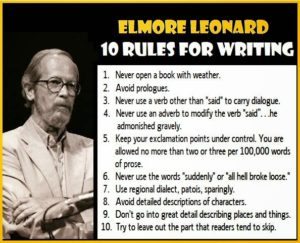This post by J.A. Konrath originally appeared on his A Newbie’s Guide to Publishing on 4/12/15.
On the surface, the path to becoming a successful writer has three key components.
1. Write a great book.
2. Do whatever you can to make that book a success.
3. Repeat steps 1 and 2.
Like all paths, just because the path exists doesn’t mean you’ll be able to follow it. There are known routes up Mount Everest, but there are no guarantees you’d make the summit no matter how good you are or how hard you try. Even the best mountain climbers must deal with the unpredictability of weather, among many other bad things that can happen.
Luck is always a factor.
Even if you’re an Olympic gold medalist with natural talent and years of training, you were lucky no one was better than you at that time. Because all records get broken. Someone always winds up being better.
Hell, you were lucky a bunch of Greeks thought it was a fun idea to compete in sports thousands of years ago. Without them, you’d be doing something else.
Keeping the luck factor in mind, let’s review those three points.
Read the full post on A Newbie’s Guide to Publishing.


